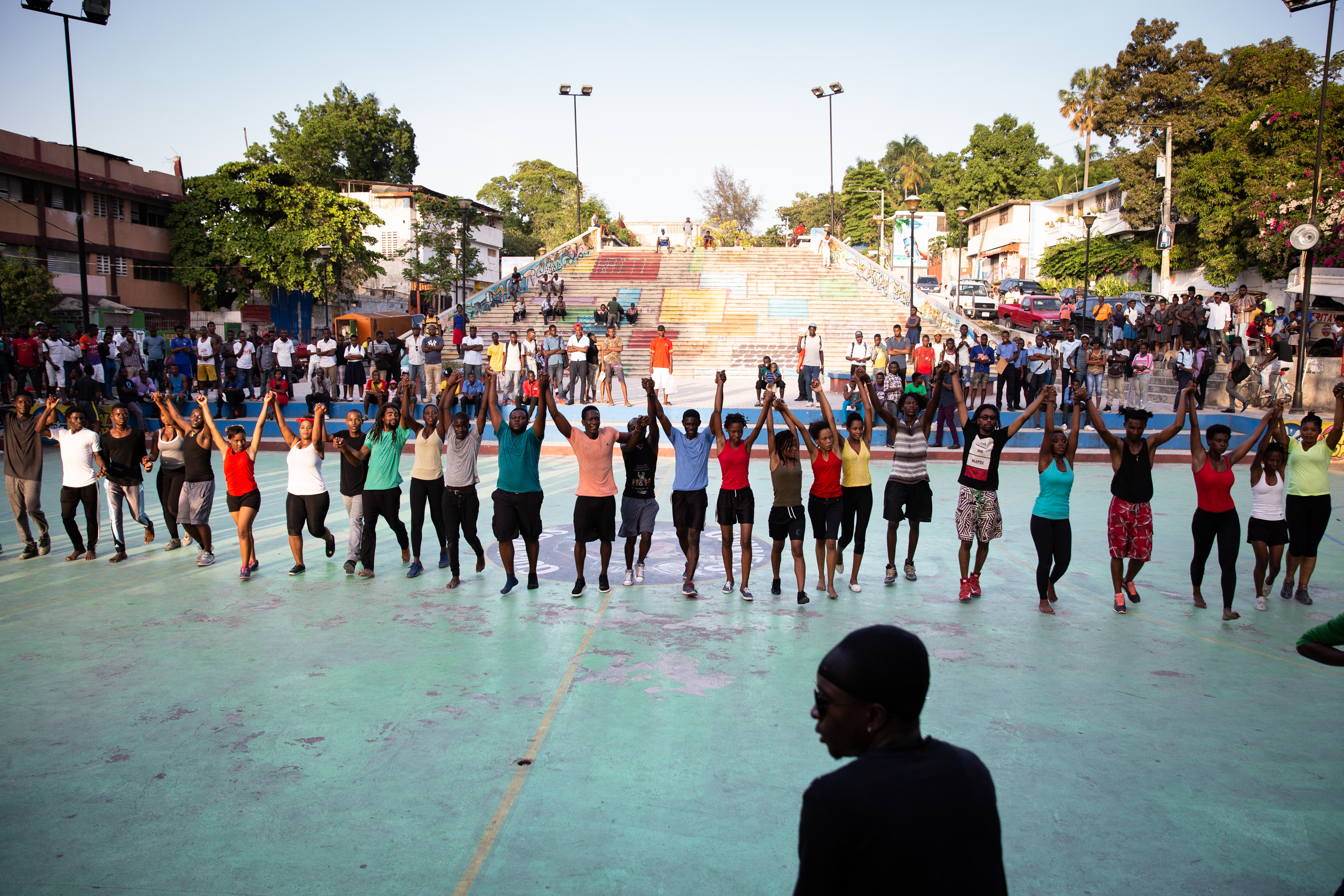Tuesday 5 June. 6 pm. At Place Jérémie (Port-au-Prince) 34 dancers, accompanied by percussion players gather for a street performance. Aged 16 to 20, these youngsters start contemporary dance moves, following the Port-au-Prince Art Performance (PAPAP) workshops. Organized during 14 days by Haitian artist and choreographer Kettly Noël in collaboration with the United Nations Mission for Justice Support in Haiti (MINUJUSTH), "Tichèlbè" dance lab addresses a crucial issue in Haiti—violence against women, to which this new generation wants to bring attention through dance.
In Haitain Créole, "Tichèlbè" is the seducer. Kettly Noël dance lab presents a male figure. In her famous creation with the same title, the choreographer represents a violent man who commits violence again his partner. She is submissive to his domination before being able to extract herself from the situation, transforming violence in a mirror for a new beginning. The performance is revisited by each of the 34 young dancers during the PAPAP workshops.
There is still too much imbalance in gender relations.
“Here, we work on the stereotypes about women that are pervasive in Haiti, but also about men,” highlights Lesly Maxi, a comedian and producer. “There is still too much imbalance in gender relations. Women are often seen as vulnerable. But they are also considered the pillars of our society. This is contradictory!”
Professional dancer and dance instructor, Rita Julie Jean-Louis helps Kettly Noël organize the PAPAP workshops: “We try to find ways to sensitize young people about ‘non-violence.’ This means finding other ways of behaving and expressing anger or frustration… To reach equality between men and women, a lot depends on educating men. Everything starts with boys’ education; they should not feel superior in their homes. And they should not be ashamed if they cry or show their emotions…”
PAPAP: a platform for emerging artists
Dancers, choreographers, comedians: there were many who benefitted from the performance at Place Jérémie to present their work and their projects to the public. « Our objective is to propose a new artistic approach, different from what exists in Haiti,” explained dancer Cheno François. “It is not about traditional dance, but contemporary art, a new form of expressing subliminal messages. It's an amazing experience that was really been driven by Kettly Noël’s passion. An invitation to tolerance, to altruism but also to the involvement of everyone in society. »
Check out PAPAP workshops photo gallery.
These workshops will really help me build my future.
“In Haiti, it’s difficult to achieve success, » says dancer Daphney Dumesle. “I have fought a lot to finish my studies and succeed. I decided to be patient to achieve my goals with dignity. I come from a poor family but I managed to become my own promoter.” For her, workshops like “Tichèlbè » not only contribute to disseminate an important message, but also help connect those like her, who are passionate about dance: “After the workshop closure, we feel like we are part of a family. We are all interconnected and nobody wants to let this go. These workshops helped a lot to continue and to build my future.”
Then, how can we address gender based violence? According to Daphney Dumesle, certainly with more social interconnectedness: « For society to be less violent, everybody needs to consider themselves as part of a family. This other girl is my sister: I care for her and I will protect her if she needs it. In any case, this is the message that we are trying to convey on stage.”







